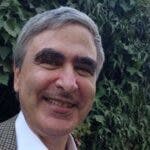Published: 10 September 2024
Last updated: 23 September 2024
With war raging in Gaza, tens of thousands evacuated in the north and south, many hostages feared dead and prospects of a regional war, it is understandable that Israelis are preoccupied with their own crises.
But one extraordinary orthodox rabbi and activist Micha Odenheimer, in addition to thinking about Israel’s plight, is keenly focused on another country that is in deep distress: Zambia, where a national emergency has been declared due to famine. It is the latest part of his longstanding and multifaceted mission to engage Jews and Israelis in a kind of tikkun olam outreach (“heal the world”) for impoverished parts of the world.
During a phone interview from Zambia in early August, Odenheimer described to The Jewish Independent how the Israeli NGO he founded and directs, Tevel b’Tzedek (World in Justice) is responding to a crippling drought threatening millions of people. It was caused by a major drop in rainfall at a critical time, which led to huge crop failure, including of the staple, maize.







Comments
No comments on this article yet. Be the first to add your thoughts.